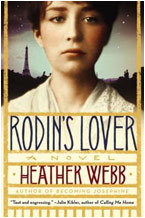I’ve been following a link on Absolutewrite.com about the question of historical accuracy. It’s been an interesting debate, especially among writers. But I find myself arguing the point- why do we always have to be accurate? Isn’t the “fiction” part of historical fiction where we, as writers, step in and make a story tantalizing?
I realize as a historical fiction writer you’re holding yourself to a a high standard of being a know-it-all researcher that can divulge ancillary details about a given time period or character. We are bookworm types that romanticize events and real-life figures.
That being said, while I agree we are knowledgeable, most of us are hardly the expert about our topics. It’s true I’ve spent a year and a half reading or watching anything I can get my hands on about my topic; but I would never call myself an EXPERT, with a capital “E”. I leave that to the historians.
Why then, do so many who read historical fiction get in a wad over our manipulation of the intangible parts of history…or even the factual minutia that surrounds an event? Our readers aren’t typically an authority about the topic and, frankly, neither are we. We just happen to really love the person we’re writing about, or the time period, or the location.
I certainly believe it’s my job to make a historic topic relevant through my character’s emotions. Safeguarding major facts is also a must in my books. The rest is fair game, as far as I’m concerned!
I suppose the real problem is that historical fiction writers present information in different ways, leaving far too much room for skepticism and comment.
Maybe all the uproar comes about because people read this genre for fun AND for information. It’s a softer way to learn about history, I suppose. Though I must say it’s the reader’s fault if they take every word as truth.
It’s a slippery slope we must walk upon; balancing emotional insight while keeping the language and the actions of the story appropriate to the times. But it’s certainly a challenge we HisFic writers relish; the way a Sci-Fi writer delights in the description of a phenomenon or super power. Or the way I relish a dirty Spanish wine served with espinacas con garbanzos.
I suppose my grand point is this: POETIC LICENSE is what makes the great art of writing, even writings based on true events, engrossing and exciting!
9 Comments
Join the conversation and post a comment.














Nicely written post and you make some very good points.
I think a lot of readers are fine with poetic license as long as the author had made clear that is what they have done. For ex. in the forward of some of my novels by Lincoln Child and Douglas Preston, they note the certain changes they made for the sake of the story.
Thank you, gypsyscarlett. I agree that many readers are forgiving, but found it frustrating how often writer’s had negative things to say about PL.
I’m excited to see your novel about your murderess unfold. I love your blog. Do you mind if I list it in my blogroll?
Ahhh, Emily Dickinson is a great love of mine. I’m assuming you’ve read The Secret Life of Emily Dickinson by Jerome Charyn?
I must get up to date! Have you already written something that I can read? What’s the status? Anyway, I agree. Sometimes stories are so real to people that they lose all reality about it. I must say that it is hard as a reader to distinguish if something is historically accurate or not, but I would think that if a character is fiction, you shouldn’t believe they themselves had any impact on history….kinda common sense, but then again there are those people out there that think Soaps are for real! 🙂
I agree with your stance on Poetic License concerning accuracy, however am a little leary on how much is “acceptable”… I do love your well written thoughts and cannot wait to see more!!
Ah, now I’m a big fan of historical fiction, but I do draw the line at one book which I started and never finished about the life of Charlotte Bronte for the exact juxtaposition you mention (reading fun and information). I don’t want a dry recount of her life, but I also don’t want a piece of fiction mingled with facts which I don’t know how to separate. If only there was a different text colour or something to let me know which bits the author was embellishing, I’d be quite happy (perhaps the future with e-readers?). Great blog so far.
I know just what you mean. My novel ‘Die a Dry Death’ is based as much as I can on fact – mixed with what I reckon was the emotion. Sometimes I’ve had to fill in the gaps and I’ve commented about that in a couple of blogs of my own. I think if you’re telling about something that really happened, you can’t go messing with the truth.
I love your writing Heather. I’m looking forward to reading everything that comes out of that incredible head of yours.
I love the website
great site! I am supporting it!! Will definitely come back again – having you rss feeds also,